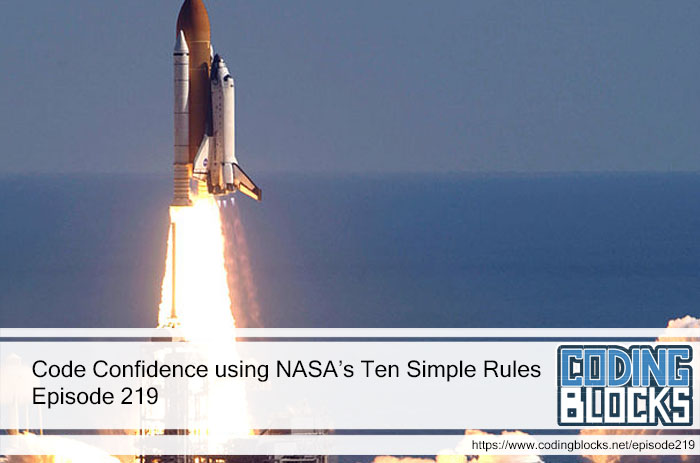
 Coding Blocks
Coding Blocks Code Confidence using NASA’s Ten Simple Rules
Oct 2, 2023
In this podcast, the hosts discuss NASA's 'Power of Ten' rules for writing safety-critical code. They cover topics such as simple control flow, limiting loops, and not using the heap. They emphasize the benefits of using stack memory and avoiding the heap, including eliminating memory bugs. The podcast also includes casual conversations, discussions on podcast reviews and store name origins, mental blocks, and choosing computer science as a category for a quiz game.
Chapters
Transcript
Episode notes
1 2 3 4 5 6 7 8
Introduction
00:00 • 4min
The Benefits of Using Stack Memory and Avoiding the Heap
04:05 • 21min
Importance of Podcast Reviews, LinkedIn Message, and 10th Anniversary
25:05 • 5min
Casual Conversation and Store Name Origins
29:52 • 3min
Mental Blocks and Body Part Phrases
33:04 • 3min
Choosing Computer Science
36:04 • 26min
Discussion on a New Instrumental Album and Show Notes Mistake
01:01:46 • 3min
Habits, Pull Requests, Llama AI, and Anaconda
01:04:32 • 12min

